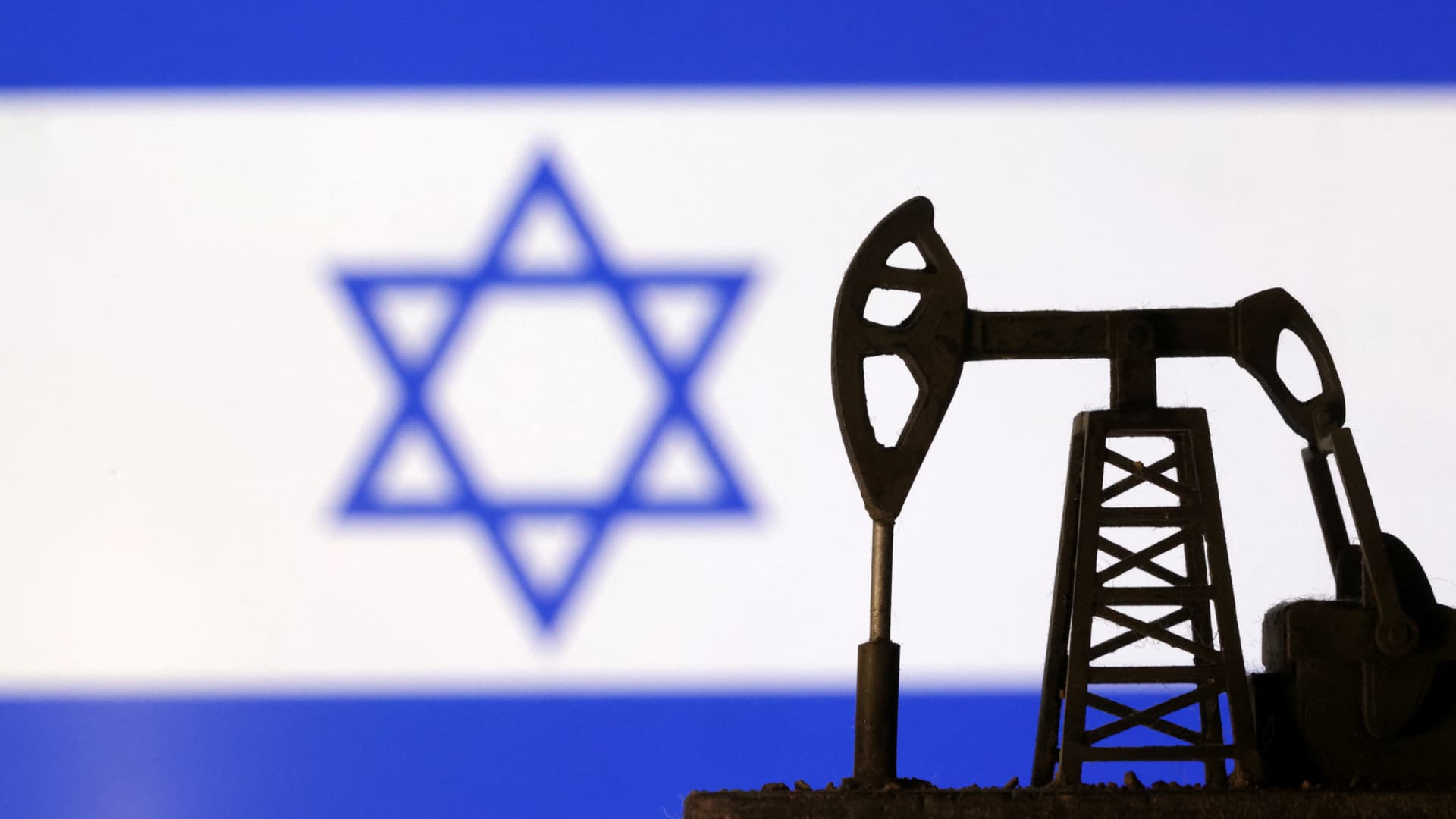The escalating conflict between Israel and Hamas threatens to push oil prices higher by straining relations between major oil producing countries in the Middle East, according to Wall Street experts. Oil prices rose on Monday after the weekend attacks, though they still remain below recent highs from two weeks ago. The move reversed some of a sharp slide that saw the price of U.S. benchmark West Texas Intermediate crude drop more than $10 per barrel since Sept. 27. @CL.1 5D mountain Crude futures jumped on Monday. Wall Street analysts cautioned that prices could rise further as the conflict takes shape. While Israel and Gaza are not oil producing regions, the war there could widen to other fronts and unwind recent diplomatic efforts elsewhere in the Middle East. Saudi Arabia One key player on the sidelines of the war is Saudi Arabia. The world’s leading oil producer already cut production in recent months, and the war could put an end to hopes that the nation would reverse those reductions, according to Goldman Sachs analyst Daan Struyven. “Along with the decline in oil prices over the last two weeks, and limited evidence for large draws in global commercial visible oil inventories over the past three months, this weekend’s developments reduce the probability of an early unwind of the Saudi production cuts,” Struyven said in a note to clients. Saudi Arabia was also engaged in diplomatic talks with Israel, which are now complicated by the war. “The Saudi leadership has insisted on Israel making significant concessions to the Palestinians as part of any normalization agreement and given what has transpired, it is very difficult to envision a government that is now on war footing to agreeing to such terms,” RBC Capital Markets strategist Helima Croft said in a note to clients. Iran The other major oil producer tied into the conflict is Iran, the chief backer of Hamas. Iran’s oil exports have been subject to sanctions from the U.S. and other nations, and those could be tightened again, even though U.S. Secretary of State Antony Blinken said Sunday that he has “not yet seen” evidence that directly tied Iran to the Hamas strike. “With the possibility of broader regional tensions re-escalating as a result of the conflict in Gaza, we think the risks to our Iranian production projections are now tilted to the downside,” Goldman’s Struyven said. Iran also has ties to Hezbollah, the Lebanon-based group that exchanged rocket fire with Israel over the weekend. “All indications are that the Israeli declaration of war on Hamas could see not only significant direct retaliation, but raises the likelihood that Israel will pre-emptively engage with Hezbollah and its rocket and military stores in southern Lebanon, and given Hezbollah’s even closer ties with Iran, will likely affect Iran’s oil exports one way or another,” Citigroup’s Ed Morse said in a note to clients. Other oil-producing countries will be less directly affected by a conflict in the Middle East. Bank of America’s Doug Leggate said in a note to clients that the United States could release oil from its strategic petroleum reserve if prices spike. “Despite criticism over prior price related releases under the current administration, its actual purpose is to be available in response to geopolitical risk to supply,” Leggate said. — CNBC’s Michael Bloom contributed reporting.
Two ways Israel-Hamas war could lead to much higher oil prices

















